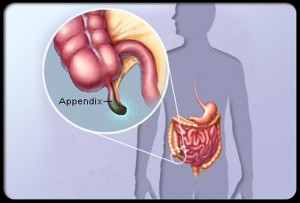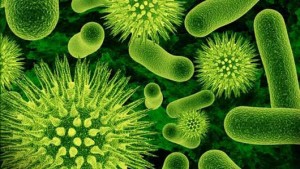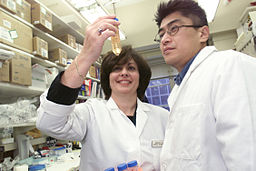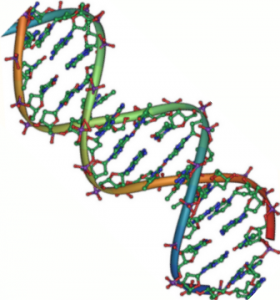The appendix gets a lot of bad press. We often think of it as one of the most pointless parts of our body that lacks any real purpose or function. But this may actually be far from the truth, with eye-opening research pointing towards an important role for this organ.
The appendix is a small, worm-shaped structure 
located on the lower right side of the abdomen, connected to the cecum. Many of us are naïve about what it does, and often the only time that we hear about the appendix is when it becomes infected. When infection occurs we remove it without much second thought. Unlike the majority of organs in the body, little is known or understood about this mysterious organ.
Often we think of the appendix as simply an evolutionary remnant from times gone by, much like the coccyx found in humans (what remains from ancient tails or vestigial hind limbs in snakes, a reminder of past legs). Scientists as early as Darwin have theorised about its purpose, and come to the conclusion that it is an archaic organ, which became useless millions of years ago. This theory proposes that long ago the appendix was important for digesting very tough food such as leaves and tree-bark, but as human diets began to transform, so did the appendix. As humans began to eat more fruit and less vegetation that was hard to digest, the appendix began to shrink into what we recognise today. Some have even gone so far as to say that in the future the appendix will disappear entirely as it becomes redundant.
Although this explanation seems plausible, it seems naïve of us to assume that the appendix has no purpose. Why would an organ that supposedly has been redundant for so long remain in our bodies? Bill Parker from the medical centre in Durham, North Carolina has suggested a rather radical U-turn for the role of the appendix.
 Parker suggested that the appendix could be useful to the ‘good’ bacteria in our gut, ensuring the smooth running of our digestive system. We know that our bodies are made up of trillions of cells, but actually houses around 10 times that number of micro-organisms, most of which are found in our guts. We have a symbiotic relationship with these organisms; they use our energy by digesting our food, and in return these ‘good’ bacteria help to prevent the spread of harmful bacteria and this is vital to the health of our gut.
Parker suggested that the appendix could be useful to the ‘good’ bacteria in our gut, ensuring the smooth running of our digestive system. We know that our bodies are made up of trillions of cells, but actually houses around 10 times that number of micro-organisms, most of which are found in our guts. We have a symbiotic relationship with these organisms; they use our energy by digesting our food, and in return these ‘good’ bacteria help to prevent the spread of harmful bacteria and this is vital to the health of our gut.
According to Parker, the appendix may be vital in protecting our intestines ‘good’ bacteria from the ‘bad’ bacteria that try to invade our gut. Essentially, you could think of the appendix as a sanctuary or a weekend spa retreat for our vital microbes. These tiny bacteria can use the appendix as an area of respite from the strain of the harsh environment in the gut. When the stores of bacteria in the gut become depleted, bacteria can be released from the appendix to fill their place.
Although this theory is interesting, there has been little in the way of supporting evidence. One study led by James Grendall at the Winthrop University Hospital in America agrees with Parker’s theory. This study involved 254 patients each of whom had a history of gut infections caused by Clostridium difficile, and had been on antibiotics as a result. Patients that remain on antibiotics for a prolonged period of time can suffer from depletion in the ‘good’ bacteria in their gut, making it harder to fight off the bad guys.
Based on Parker’s theory, those individuals with an appendix should have a better chance at fighting off the infection by producing and sending more of the ‘good’ bacteria into the gut. However, those who have had their appendix removed may be unable to release these protective bacteria to replenish the stock in the gut, and therefore the ‘bad’ bacteria can take over.
What they found was striking. Out of the 254 patients, those without an appendix and consequently the bacteria housed there, were twice as likely to have a recurrence of the infection. Recurrence was likely to occur in 45% of cases when there was no appendix, compared to 18% recurrence in individuals who did have one.
We also know that the lining of the appendix is rich in infection-fighting lymphoid cells that accumulate shortly after birth, peaking in our 20’s and 30’s but rapidly decreasing as we age. This lymphatic tissue encourages the growth of beneficial gut bacteria.
Although it is tempting to believe that our appendix is a redundant vestigial organ, there is the possibility that it plays a role in protecting the ‘good’ bacteria in our gut. There is however little in the way of research to confirm its role one way or another. I think for now the exact role of the appendix will remain a mystery, at least until more research is carried out.
Post by: Sam Lawrence





 Slipping a disc is, by all accounts, excruciating, but it usually starts to heal by 6-8 weeks. However, someone can be diagnosed with chronic back pain (CBP) when the pain doesn’t subside after three months. Trouble is, this happens all too often, with an estimated 4 million people in the UK suffering from CBP at some point in their lives. The cost of CBP to the NHS is about £1 billion per annum. This doesn’t even cover lost working hours or the loss of livelihood suffered. Treatment usually focuses on relieving pain, preventing inflammation and more recently, cognitive behavioural therapy to treat the patient’s psychology, especially if the organic, physical cause of the pain is no longer obvious.
Slipping a disc is, by all accounts, excruciating, but it usually starts to heal by 6-8 weeks. However, someone can be diagnosed with chronic back pain (CBP) when the pain doesn’t subside after three months. Trouble is, this happens all too often, with an estimated 4 million people in the UK suffering from CBP at some point in their lives. The cost of CBP to the NHS is about £1 billion per annum. This doesn’t even cover lost working hours or the loss of livelihood suffered. Treatment usually focuses on relieving pain, preventing inflammation and more recently, cognitive behavioural therapy to treat the patient’s psychology, especially if the organic, physical cause of the pain is no longer obvious.




